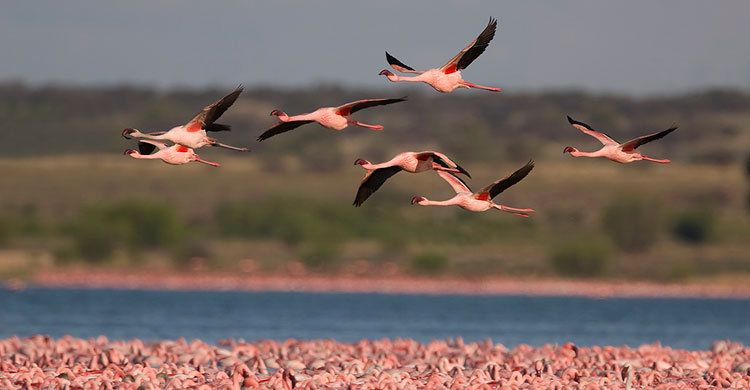The United Nations Environment Programme (UNEP), says water availability remains essential to the survival of migratory birds.
World Migratory Bird Day was initiated in 2006 by the Secretariat of the Agreement on the Conservation of African-Eurasian Migratory Waterbirds (AEWA) in collaboration with the Secretariat of the Convention on the Conservation of Migratory Species of Wild Animals (CMS).
Originally, the idea of designating a day for migratory birds arose in the United States in 1993, when the US Fish and Wildlife Service, the Smithsonian Migratory Bird Center, and the Cornell Laboratory of Ornithology initiated celebrations of the ‘International Migratory Bird Day’ (IMBD), which encourages bird festivals and education programmes across the Americas.
The World Migratory Bird Day is held on May 13 and concludes on October 14, each year since inception.
UNEP in a statement to commemorate the day, yesterday, pointed out that the campaign for 2023 focuses on the topic of water and its importance for migratory birds.
“Water is fundamental to life on our planet. The vast majority of migratory birds rely on aquatic ecosystems during their life cycles. Inland and coastal wetlands, rivers, lakes, streams, marshes, and ponds are all vital for feeding, drinking, or nesting, and also as places to rest and refuel during their long journeys,” the UNEP statement read in part.
The agency regretted that human activities and climate change were negatively impacting migratory birds. It hinted that next year’s World Migratory Bird campaign will focus on identifying key actions for protecting water resources and aquatic ecosystems.
“Unfortunately, aquatic ecosystems are becoming increasingly threatened around the world and so are the migratory birds that depend on them. The increasing human demand for water, as well as pollution and climate change, are having a direct impact on the availability of clean water and the conservation status of many migratory birds.
“Next year’s World Migratory Bird Day campaign will highlight the importance of water for migratory birds and identify key actions for protecting water resources and aquatic ecosystems.
“The two peak days of World Migratory Bird Day 2023 will be 13 May and 14 October, reflecting the cyclical nature of bird migration with varying migration periods in the northern and southern hemispheres”, the statement added.
The theme for this year’s World Migratory Bird Day; “Water: Sustaining Bird Life” highlights the fact that water is essential for people as well as migratory birds and other wild species of animals around the world.
Executive Secretary of the Convention on the Conservation of Migratory Species of Wild Animals (CMS), Amy Fraenkel, noted in a statement, the need for world bodies and stakeholders to address water shortages to preserve migratory birds.
“The looming global water crisis requires urgent attention and action by governments, businesses, local communities as well as individuals.
“Because migratory birds cross national borders and even continents, international cooperation is essential to ensure that actions are taken to conserve and restore important habitat for migratory birds, and to address the drivers of water loss, pollution, and climate change,” said Fraenkel.
“The diminutive Rufous Hummingbird thrives on nectar-producing flowers that rely on water for their blooms, and the Dickcissel scours the grasslands for seeds that hold the moisture they need.
“White Pelicans and Ospreys seek their prey in freshwater lakes, while the magnificent Wandering Albatross and Atlantic Puffin remain at sea.
“WMBD is an opportunity to unify our voices for the conservation of migratory birds and to celebrate their spectacular journeys,” said Dr. Susan Bonfield, Executive Director at Environment for the Americas (EFTA).
According to the Deputy Executive of the East Asian-Australasian Flyway Partnership (EAAFP), Ms. Yeounhee Ahn, this year’s WMBD theme serves as a vital reminder of the need for migratory birds to be protected through aquatic ecosystems and conserving wetlands.
Ahn said: “As birds such as threatened Spoon-billed Sandpiper, Dalmatian Pelican, and Sarus Crane migrate, they rely heavily on wetlands for survival. We must take urgent actions and collaborate at all levels, from citizens to among governments, to tackle the problems of saving water and aquatic ecosystem, and ensure that migratory birds continue to thrive,”
Reports say about 1,400 species of birds are regular migrants, and that makes it 40 percent of birds in the world. The bar-headed geese are the most flying migratory birds, especially in India.
It is also reported that birds of different species migrate at the same time or period of the year. Some penguins are known to migrate by swimming. Generally, migratory birds prepare for long flights by storing up fats for use in their long journeys.
By Grace Samuel








